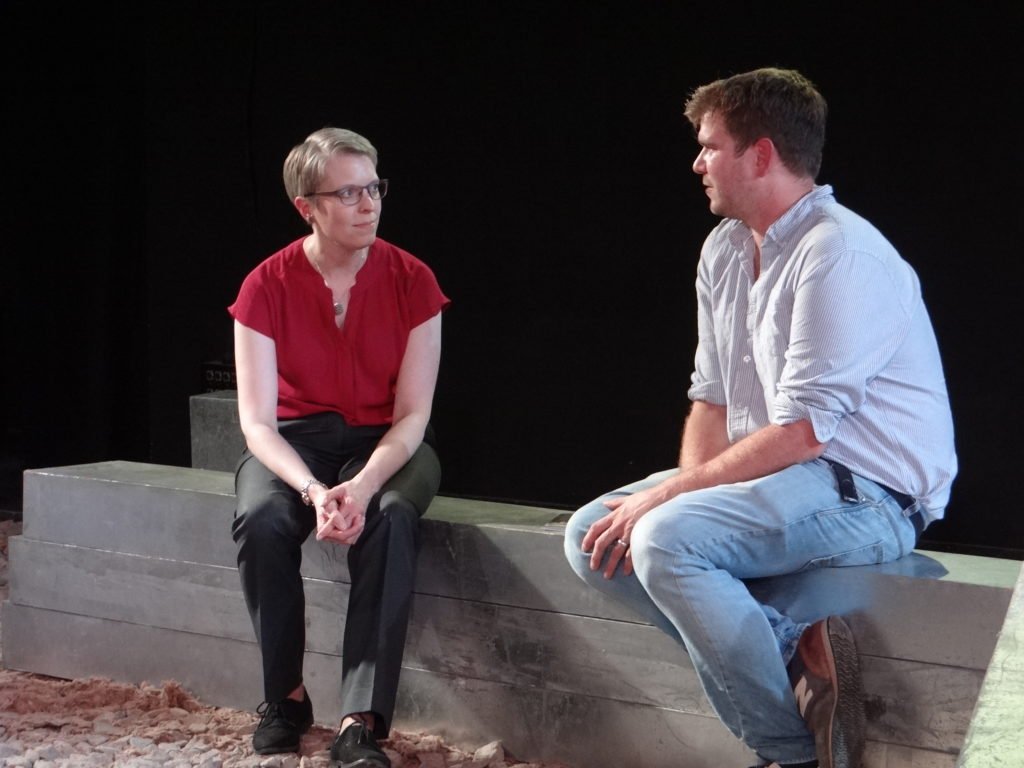 Supported by the British Safety Council and other organisations, including supplier Arco, the play 31 Hours, seeks to address the issues around suicide and mental health on the UK rail network.
Supported by the British Safety Council and other organisations, including supplier Arco, the play 31 Hours, seeks to address the issues around suicide and mental health on the UK rail network.
The Council endorsed the production, which is currently being performed at the Bunker Theatre in London, due to the importance of its subject – the reluctance and inability of men in ‘macho’ work environments to talk about their concerns and their feelings.
The outcome of the play is devastating – and explains the vital role of communicating such issues:
- Every 31 hours, someone takes their own life on the railways in the UK rail network.
- It is ten times more likely to be a man.
Created by independent production company W1 Productions, 31 Hours is a story of four men who clean up after rail suicides. The viewer observes them at work and when they return home, and watches as they deal with their own lives and their problems in silence.
The story of four men failing to talk, it is filled with humour and humanity, taking viewers on a high-speed kaleidoscopic journey through masculinity, mental health and messy aftermaths in modern Britain.
Porfolio
The British Safety Council recently unveiled its mental health training portfolio to help businesses and their employees start conversations about mental health issues and build a positive mental health culture.
On the 17 October, the staff of the Council watched the performance of 31 Hours. In the Q&A session afterwards, Louise Ward, communications and policy director at the Council, spoke to Kieran Knowles, the author of the play, and answered the questions from the audience about issues explored by the play.
Louise previously worked for four years at Network Rail as head of health and safety, supporting the teams responsible for dealing with the aftermath of suicides.
Powerful message
Louise Ward said: “31 Hours carries a powerful message about the reasons behind and effects of fatalities on railways in Britain and about suicide in general. Importantly, it inspires conversation about mental health, which needs to occur much more widely – in workplaces, schools, families and in the media.
“Only by discussing these issues openly will we enable more people to recognise the signs of distress and to offer help. This will be supported by other interventions, including specialised advice and help, through organisations such as the Samaritans, whose posters are now displayed at many rail stations.
“The more we talk about mental health issues, the more it becomes acceptable to admit that one is affected by them. That it’s OK not to feel well and to talk about it. Unlike physical ailments, which demonstrate themselves through a variety of symptoms, mental health problems are silent killers – they are ‘invisible’. That’s why affected people need to feel able to ask for help. When this happens, we will know that we have broken the stigma that currently surrounds poor mental health.”
‘We are killing ourselves’
Kieran Knowles, the author of 31 Hours, in his interview with the Council’s in-house title, Safety Management, explained what inspired him to write the play: “At the time, I was working for a train operating company in a maintenance department and became more aware of the economic impact of suicides on the rail industry, the logistics involved in clearing up such incidents and the sheer number of people involved.
“If the biggest killer of young men was a new virus, we’d all be ploughing money into research and we wouldn’t accept it until we had eradicated it. It’s suicide; we are killing ourselves and we need the same investment and the same determination to deconstruct the issue and find a solution.”
Adding realism
To help the actors correctly represent real rail workers, safety consultants and supplier Arco donated a range of specialist PPE to the show including boots, high visibility clothing, gloves, hard hats and head torches.
As a major supplier to the UK construction and rail industries, Arco is dedicated to raising awareness of mental health amongst the UK workforce and hopes the play will start vital discussions with industry leaders around the country.
Between 2011 and 2015, 1,419 skilled construction workers and those working within the building trades committed suicide; 1,409 of these were men aged between 20 and 64.
Martyn Emery, sector sales manager at Arco, said: “It’s becoming more and more important to talk about mental health, however, there’s still a large percentage of the UK workforce, especially men, who don’t feel comfortable or supported enough to express their feelings.
“This play is a compelling way to encourage discussions on mental illness and, as an advocate of worker wellbeing, Arco is privileged to support such an important issue.”
What makes us susceptible to burnout?
In this episode of the Safety & Health Podcast, ‘Burnout, stress and being human’, Heather Beach is joined by Stacy Thomson to discuss burnout, perfectionism and how to deal with burnout as an individual, as management and as an organisation.
We provide an insight on how to tackle burnout and why mental health is such a taboo subject, particularly in the workplace.



Such an important issue. It would be good if this play was made available in video format for inclusion in training and raising awareness. Does anyone know if this is going to be an option?